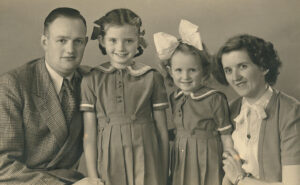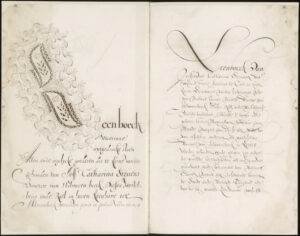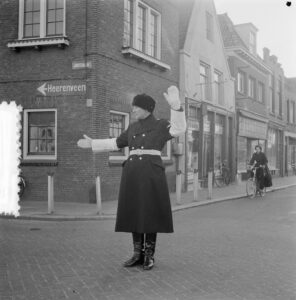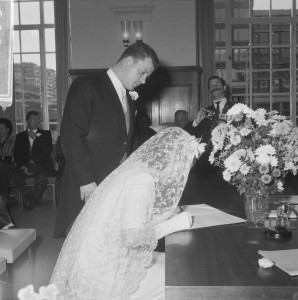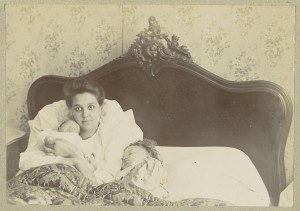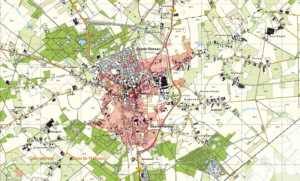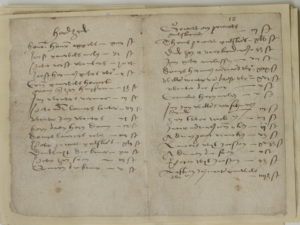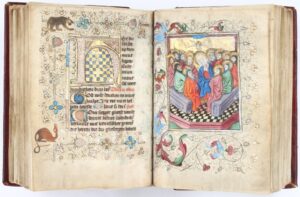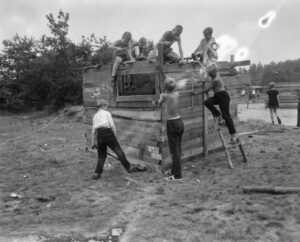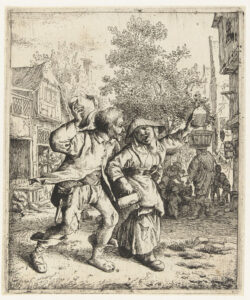In my Level-Up Challenge, I defined six levels of ancestral profiles. In this post, I will give you a basic research plan for an ancestor living in the 20th century for levels 1-4. Level 1: Names only I usually find the name of the person in records of somebody else I am researching. No specific research plan needed. Level 2: Vital statistics Birth record. Birth records are public after 100 years. Marriage record. Marriage records are public after 75 years. Death record. Death … [Read more...]
About this website
Creating a website like this is a fun activity. There are so many options, so many choices. What do visitors want? What do I want? In this blog I will describe some of the things I encounter in developing and maintaining this website.
Dutch Genealogy News for November 2022
Here is an overview of the new sources, websites, and projects that were announced last month. Sources The Regionaal Archief Rivierenland is putting the indexed notarial records of the west of Gelderland online. The records were indexed by volunteers, and they are now being uploaded to the archive's website. The finding aid for the files of people investigated by the Domestic Security Service (Binnenlandse Veiligheidsdienst, BVD) between 1945 and 1998 have been catalogued. The finding … [Read more...]
Quick tip – Was the municipality involved?
Records created by the municipality can be a great source of information about our ancestors' lives. The municipality collected taxes, provided poor relief, gave permits, and kept population registers. They employed many people, including teachers, architects, and police officers. They wrote reports about the state of the municipality, which can give information about crops, industry, and special events. The mayor was informed if a resident was admitted to an asylum, or of other special … [Read more...]
Quick tip – Check marriage supplements of children
If you are researching a person, make sure to check the marriage supplements of any children who married after the introduction of the civil registration. The civil registration was introduced in 1811 in most parts of the Netherlands, and in 1795 in parts of Limburg and Zeeuws-Vlaanderen. Civil registration marriage records have marriage supplements, the records that the bride and groom had to submit to show their identity and eligibility to get married. These records often contain … [Read more...]
Quick tip – Get the birth records of all children
When you are researching a family during the time of the civil registration (after 1811 in most parts of the Netherlands), make sure to gather the birth records of all the children. They are usually easy to find since most of them have been indexed. Some things you can learn when you have the birth records of all the children: It will give you the family composition. I find it interesting to see what place a child had in its family. Was he the oldest son? He may have followed in his … [Read more...]
The Bizarre Borders of Baarle
If you look at a modern map of Baarle-Nassau in Noord-Brabant, you will see something weird. Lots of areas are marked in red. These areas are not part of Baarle-Nassau, but of Baarle-Hertog, a municipality in Belgium. There are little bits of Belgium in the Netherlands part, and little bits of the Netherlands in the Belgian part. In total, there are 30 enclaves (territory surrounded by another nation's territory), of which 22 belong to Belgium's Baarle-Hertog (H on the map below) and 8 belong to … [Read more...]
Quick tip – Tax for owners or residents?
There are different types of real estate taxes: those for owners, and those for residents. Some tax registers have one, some the other, and some have both. Understanding which is which can be a vital clue to research your ancestors. If your ancestors owned real estate, that can prompt research into land records. If your ancestors were tenants, you can still check land records in case they owned property at a different time or in a different place. But if you cannot find them, that explains … [Read more...]
Dutch Genealogy News for October 2022
This is an overview of new sources, projects, and websites that were announced last month. Sources The town records of Baarle-Nassau, Chaam, and Diessen before 1811 have been scanned and are availble via the finding aids at the Regional Archives of Tilburg website (see links at bottom). The Regional Archives of Tilburg has made several old movies of the Tilburg region available via their image bank. Two Frisian newspapers are now available via the Súdwest-Fryslân municipal archives: … [Read more...]
Quick tip – Expand the scope
When you get stuck, you can expand the scope of your research to increase the chances of finding relevant evidence. Here are some different ways to expand the scope: Research more people: the children of your brick wall ancestor, known siblings, spouses (if they were married multiple times), neighbors and other associates Research the property they owned or rented, to find out how and when it got into the family and where it went next. Expand your geographic area. People often created … [Read more...]
Quick tip – Many people were convicted of crimes
In the nineteenth and early twentieth century, you may be surprised to find how many of your ancestors were convicted of a crime or misdemeanor by the courts, and how many had to serve a prison sentence. Many things for which the police would just give a ticket today were brought before the court. Poor people often received a (short) prison sentence instead of a fine, or would be sent to prison if they did not pay a fine. Some examples of crimes my poor ancestors were convicted of: … [Read more...]
